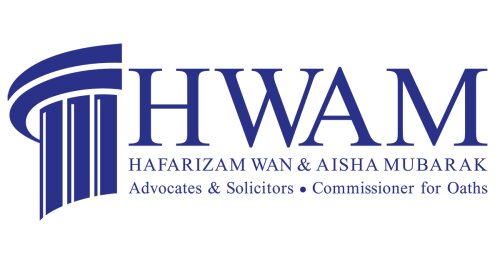Best Native People Lawyers in Putrajaya
Share your needs with us, get contacted by law firms.
Free. Takes 2 min.
List of the best lawyers in Putrajaya, Malaysia
About Native People Law in Putrajaya, Malaysia
In Malaysia, Native People, often referred to as the Orang Asli, are the indigenous peoples of the region, including territories such as Putrajaya. They are recognized for their unique culture, traditions, and rights within the Malaysian societal framework. The Federal Constitution of Malaysia and various legislations provide specific rights and protections for the Orang Asli communities. These provisions are crucial in safeguarding their land rights, cultural heritage, and social welfare. The Orang Asli population, while relatively small, plays a significant role in the cultural mosaic of Malaysia and faces unique legal challenges that often necessitate specialized legal guidance.
Why You May Need a Lawyer
Individuals within the Native People communities or those interacting with them may require legal assistance in several scenarios, such as:
- Disputes over land rights and usage, especially given the customary and legal acknowledgments of Native lands.
- Issues related to the preservation of cultural heritage and intellectual properties of the Orang Asli.
- Ensuring compliance with governmental policies pertaining to Native welfare and development plans.
- Addressing any discrimination or human rights violations faced by Native People.
- Negotiating partnerships or agreements in sustainable tourism, resource management, or other business ventures involving Native lands.
- Seeking clarity and defense in legal matters regarding statutory rights and recognitions specific to Native populations.
Local Laws Overview
The local legal landscape in Putrajaya and Malaysia at large includes several laws that specifically pertain to Native People. Key aspects include:
- The Aboriginal Peoples Act 1954, which recognizes the rights of the Orang Asli to occupy traditional lands and supports their welfare and developmental needs.
- The National Land Code, which governs the ownership and use of land, including provisions related to Native land rights.
- Federal Constitution provisions that address the protection and promotion of the interests of marginalized communities, with specific emphasis on Native groups.
- Statutes and policies under the Department of Orang Asli Development (JAKOA), which is responsible for overseeing and executing strategies aimed at the well-being of the Orang Asli.
Frequently Asked Questions
Who are the Native People in Putrajaya?
The Native People in Putrajaya are mainly the Orang Asli, the indigenous inhabitants of Peninsular Malaysia, comprising various ethnic sub-groups each with distinct languages and cultural practices.
Do Native People have special legal rights in Malaysia?
Yes, they have rights under the Federal Constitution and legislation such as the Aboriginal Peoples Act 1954, which protects their lands, customs, and welfare needs.
Can anyone interact with Native lands freely?
No, accessing or utilizing Native lands typically requires consent from the communities involved, and must adhere to laws protecting their rights.
What is the role of JAKOA?
The Department of Orang Asli Development (JAKOA) seeks to enhance the quality of life and protect the rights of the Orang Asli through various socio-economic programs and advocacy efforts.
Are there legal protections against discrimination for Native People?
Yes, both domestic legislation and international commitments provide frameworks to protect the Orang Asli against discrimination and human rights abuses.
How does land ownership work for Native communities?
Native communities have recognized customary rights to lands they have traditionally occupied, but may require legal assistance to secure formal titles or resolve disputes.
What steps can be taken if the rights of Native People are violated?
Individuals can lodge complaints with JAKOA or pursue legal action through courts to enforce their rights as per the relevant laws.
Are there educational support programs for Native People?
Yes, the Malaysian government, through various initiatives, offers educational support to facilitate the development of Native communities.
How do native people benefit from Malaysia's development policies?
Development policies aim to uplift Native communities through improved access to health, education, and economic opportunities while respecting their cultural practices.
Can non-Native individuals form partnerships with Native communities?
Yes, partnerships in areas such as eco-tourism or sustainable resource use can be beneficial, provided they respect legal frameworks and are mutually agreed upon.
Additional Resources
For further assistance and detailed guidance, the following resources may be of help:
- Department of Orang Asli Development (JAKOA): The primary governmental body dedicated to the welfare of the Orang Asli.
- National Human Rights Commission of Malaysia (SUHAKAM): Offers support and advocacy for indigenous rights.
- Legal Aid Centres: Provide services for those seeking legal counsel, including matters involving Native rights.
Next Steps
If you require legal assistance concerning matters related to Native People in Putrajaya:
- Identify the specific legal issue you are facing.
- Gather relevant documents and any evidence related to your situation.
- Contact a legal practitioner who specializes in Native law or reach out to NGOs that advocate for the rights of Native People.
- Consult government bodies like JAKOA to understand your rights and the resources available to you.
- Consider engaging with local indigenous leaders or councils for community-specific guidance and support.
Lawzana helps you find the best lawyers and law firms in Putrajaya through a curated and pre-screened list of qualified legal professionals. Our platform offers rankings and detailed profiles of attorneys and law firms, allowing you to compare based on practice areas, including Native People, experience, and client feedback.
Each profile includes a description of the firm's areas of practice, client reviews, team members and partners, year of establishment, spoken languages, office locations, contact information, social media presence, and any published articles or resources. Most firms on our platform speak English and are experienced in both local and international legal matters.
Get a quote from top-rated law firms in Putrajaya, Malaysia — quickly, securely, and without unnecessary hassle.
Disclaimer:
The information provided on this page is for general informational purposes only and does not constitute legal advice. While we strive to ensure the accuracy and relevance of the content, legal information may change over time, and interpretations of the law can vary. You should always consult with a qualified legal professional for advice specific to your situation.
We disclaim all liability for actions taken or not taken based on the content of this page. If you believe any information is incorrect or outdated, please contact us, and we will review and update it where appropriate.









